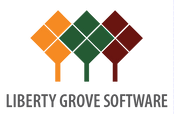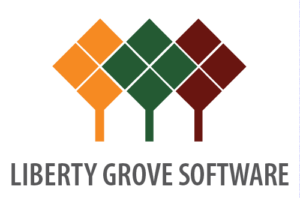Is Your Food and Beverage Company Compliant? An ERP Can Help.
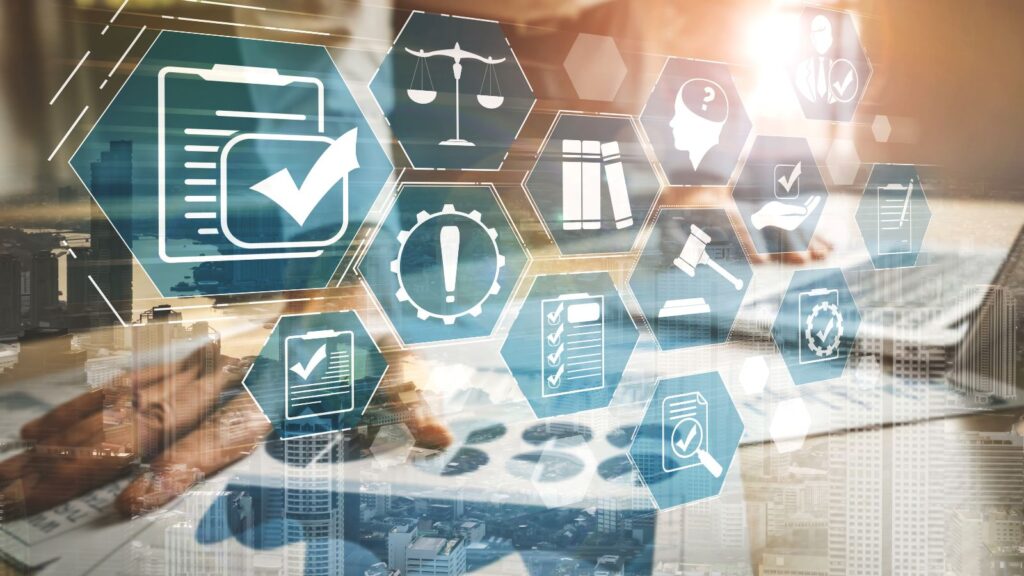
Ensuring food safety and compliance is paramount in the ever-changing food and beverage industry. Increasingly, Food and Beverage manufacturers utilize ERP (Enterprise Resource Planning) systems to manage compliance requirements and ensure quality assurance in response to consumers' increasing demands, tightening industry standards, and growing food recalls.
The Food and Beverage industry, with its numerous complex supply chains and innovative products, is no exception to the rule that regulatory compliance can be one of the most time-consuming and cost-intensive aspects of conducting business.
Technology, on the other hand, has the potential to simplify this process. That’s where an ERP like Liberty Grove’s DynamicsFoodERP, powered by Dynamics 365 Business Central, can be a game-changer for food and beverage manufacturers.
ERP and Its Role in the Food and Beverage Industry
ERP is a powerful software solution that integrates and manages various organizational business processes. Consider it the hub of your operations, linking multiple departments and optimizing data flow.
But what does ERP do? It goes beyond simply handling data. ERP enables companies to automate and streamline operations, enhancing decision-making, efficiency, and production. It provides a consolidated platform for storing and accessing all vital information, making it easier for employees to collaborate and achieve common goals.
In the food and beverage business, ERP systems play a critical role in managing complex processes such as inventory control, quality assurance, supply chain management, and other business aspects. By integrating these processes into a single system, ERP systems enable firms to increase productivity, reduce costs, and improve overall performance.
Quality Assurance and Compliance
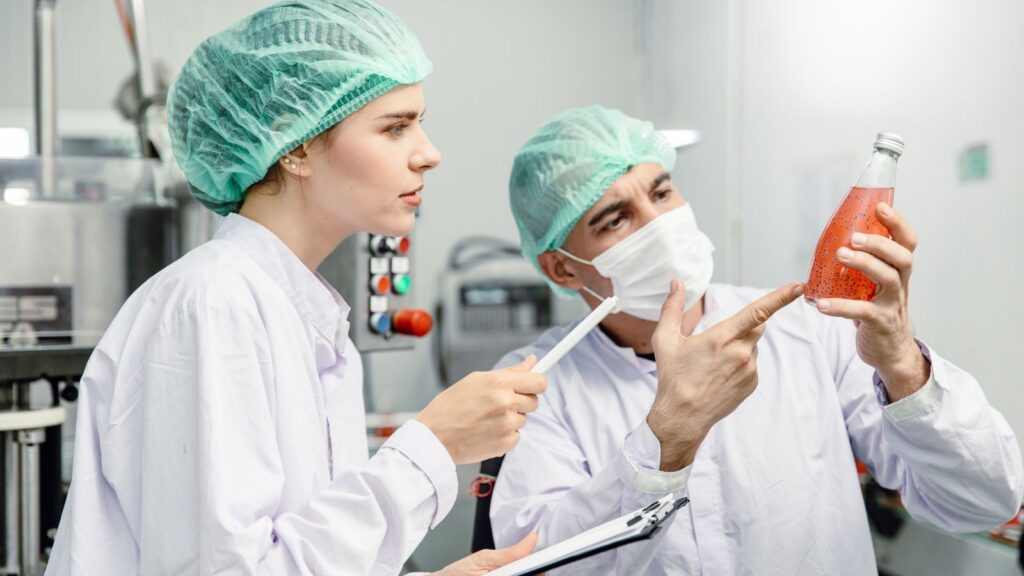
In the food and beverage industry, ensuring compliance with industry standards without compromising quality is not just a goal but a necessity. ERP systems, with their sophisticated quality control modules, enable end-to-end monitoring of product quality parameters. They gather essential data from raw material inspection to finished product testing, allowing you to identify and correct errors as they occur.
ERP enables firms to meet regulatory requirements by offering a single repository for documents, certifications, and safety processes. It ensures your items satisfy the highest quality standards and protects your brand's reputation.
Transparency and Traceability

ERP provides transparency and traceability throughout the supply chain. Its capabilities include batch tracking, expiration date management, and recall management, which assist firms in maintaining quality standards and complying with safety laws.
Consider the situation in which a food product is found to be tainted. ERP enables businesses to immediately identify faulty batches, track their sources, and take appropriate action to prevent further distribution. It protects both customers and the company's reputation.
In addition to compliance, ERP improves production planning and management, optimizes inventory levels, cuts waste, and lowers prices. It gives real-time demand forecasts, ensuring you have the correct products at the right time, preventing stockouts, and increasing customer satisfaction.
For example, assume you manufacture a range of health beverages. An ERP enables you to analyze sales data and consumer preferences to forecast demand for various types of drinks accurately. It also lets you plan your production schedule accordingly, ensuring enough inventory to fulfill client demand while reducing waste.
ERP software can also help manage multiple recipes and track ingredient costs, allowing you to make more informed pricing decisions. Estimating the cost of ingredients, labor, and overhead will enable you to set the most profitable pricing for your products while remaining competitive.
ERP Systems Assist with Inventory Management and Control
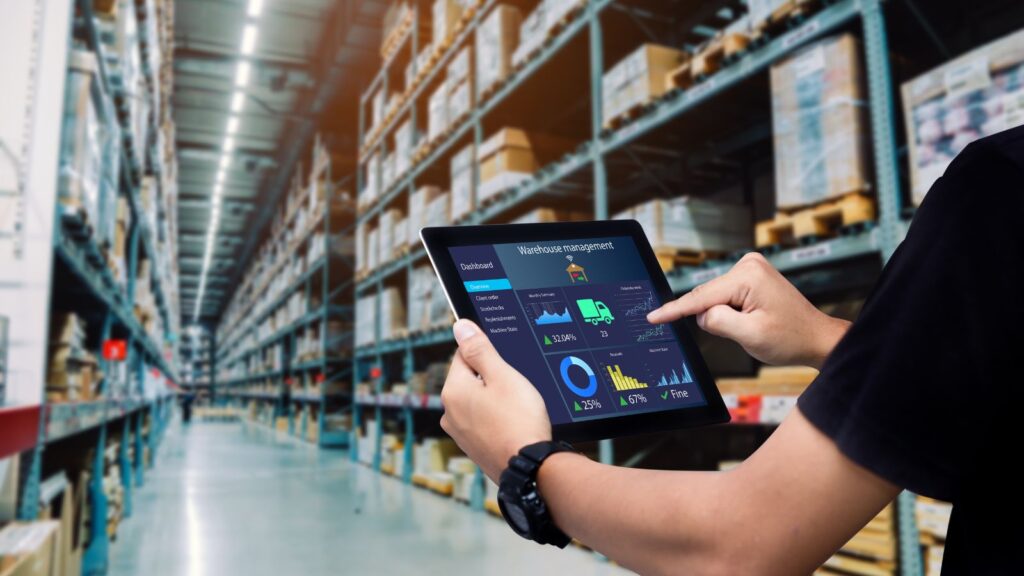
Efficient inventory management is critical in an industry with perishable items and stringent rules. ERP solutions give Food and Beverage managers real-time visibility into inventory levels, allowing them to optimize stock replenishment and lower carrying costs. ERP provides automatic reordering, barcode scanning, and serial number tracking capabilities to help you keep correct stock records and minimize overstocking or stockouts.
Also, an ERP can link with warehouse management systems, allowing for seamless pick, pack, and ship operations. This connection streamlines the supply chain, increasing order fulfillment accuracy and decreasing transit time.
Recipe and Product Costing
The profitability of food and beverage industries depends on accurately determining the costs of recipes and products. ERP systems include extensive recipe management features that enable detailed cost analysis. ERP estimates each product's actual cost by considering ingredient costs, labor charges, overheads, and packaging costs.
This information lets you make more educated pricing decisions, uncover cost-cutting opportunities, and maximize profit margins. ERP also allows you to run "what-if" analyses to see how ingredient pricing fluctuations or production process changes affect product costs.
Supply Chain and Distribution Management
A well-organized supply chain is essential for delivering items on schedule and keeping customers satisfied. ERP systems improve supply chain performance by integrating supply and demand planning, procurement, manufacturing, and distribution operations.
ERP helps firms simplify operations, detect bottlenecks, and increase efficiency by offering real-time visibility into inventory levels, manufacturing plans, and order fulfillment status. With capabilities like automatic order entry, efficient route planning, and delivery tracking, ERP enables you to meet client requests quickly and effectively.
The Effect of ERP on Operational Efficiency: Streamlining and Reducing Waste
A top advantage of ERP software in the Food and Beverage sector is that it streamlines processes and reduces waste. ERP improves operational efficiency and reduces errors by automating tasks previously performed by humans. It also helps avoid redundant data entry and ensures proper information flow.
With better process visibility and control, your staff can detect bottlenecks, streamline workflows, and cut expenses. Real-time data analytics means data-driven decisions, elimination of guesswork, and risk mitigation.
Enhanced Decision-Making Through Real-Time Data
ERP software offers real-time visibility into numerous aspects of your business. You can effortlessly obtain essential information, including inventory levels and sales performance. This real-time data allows you to make informed decisions quickly and efficiently.
ERP's integrated reporting and analytics capabilities facilitate the development of personalized reports, the monitoring of key performance indicators (KPIs), and the acquisition of insights into trends and patterns.
A data-driven decision-making process enables Food and Beverage manufacturers to identify opportunities, mitigate risks, maintain a competitive edge, and increase profits.
Improved Customer Service and Satisfaction

Flawless customer service is essential in the highly competitive food and beverage industry. An ERP system assists manufacturers in delivering products on time, managing inventory levels, and providing accurate order information, thereby improving customer service.
ERP's CRM (Customer Relationship Management) connection centralizes customer data, enabling enhanced customer segmentation, targeted marketing campaigns, and personalized support. By comprehending consumer preferences and purchasing patterns, you can improve overall satisfaction, construct enduring relationships, and enhance customer loyalty.
Enterprises in the food and beverage sector increasingly depend on ERP solutions. By selecting the appropriate system and implementing best practices, ERP can assist manufacturers in achieving long-term growth, ensuring regulatory compliance, and increasing productivity.
Choosing the Right ERP System for Your Business
Before beginning your ERP journey, you must evaluate your business requirements. Take stock of your pain issues, process inefficiencies, and growth goals. When designing your ERP system requirements, consider scalability, flexibility, and ease of use.
A thorough needs analysis can help you determine the features and functionalities of your company's needs, ensuring that the ERP system you choose corresponds with your business goals.
Conclusion
ERP offers valuable insights into consumer preferences, trends, and behavior. By analyzing marketing, sales, and supply chain data to identify patterns and trends, Food and Beverage manufacturers can more effectively customize their services to meet their customers' requirements, resulting in increased consumer satisfaction, loyalty, and repeat business.
ERP is a game-changing technology in the food and beverage industry. It guarantees compliance, reduces costs, enhances performance, increases efficiency, and streamlines operations. In the current fast-paced and competitive industry, Food and Beverage manufacturers can maintain a competitive advantage and flourish by implementing an ERP system.
Is Your Food and Beverage Company Compliant? Time for an ERP?
Liberty Grove can help you implement an ERP solution that will ensure you’re always on the right side of compliance laws.
Contact Liberty Grove for a complimentary consultation on how the Liberty Grove team can help you ensure compliance throughout the supply chain, guarantee quality, and maximize profits.
Related reading:
Food Traceability | How Cloud ERP Can Help
Compliance Matters: 8 Ways ERP Can Help Food and Beverage Manufacturers
Modern ERP for Food & Beverage: Enhancing Traceability & Recall
About the author
Liberty Grove Software is an established Microsoft Partner that focuses on providing customers with sales, service, and support for Microsoft Dynamics 365 Business Central/NAV solutions and training and upgrades.
Over more than 25 years, Liberty Grove has assisted hundreds of customers with businesses ranging from small to mid-sized to Microsoft Partners in implementing, training, customization, and upgrading Microsoft Dynamics ERP solutions.
The organization is one of only a few companies worldwide that Microsoft recognizes as qualified to provide Business Central/NAV Upgrade Service Centers.
